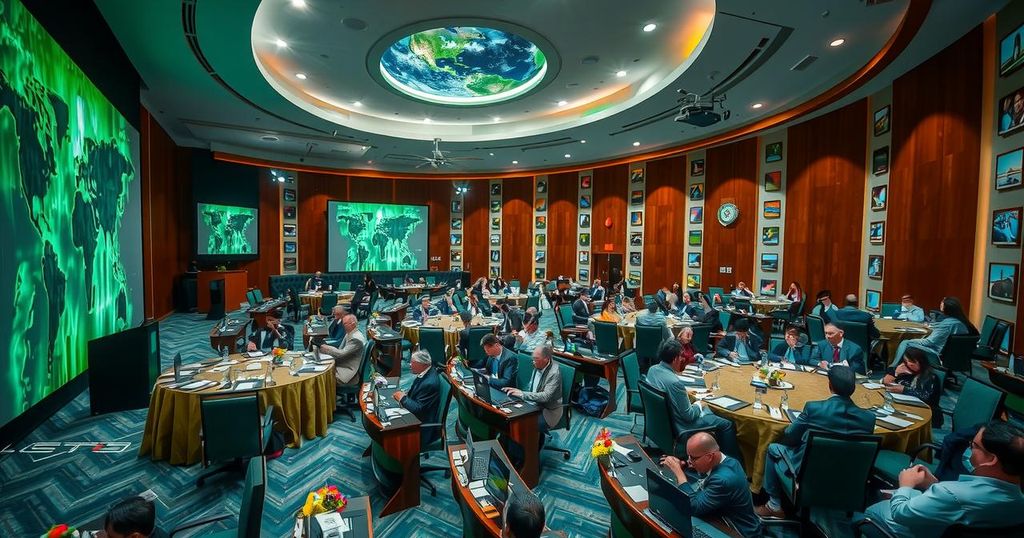Recent UN climate talks in Baku exemplify the persistent difficulties in reaching consensus, echoing a long history of failures in negotiations, such as COP6 in 2000 and COP15 in Copenhagen in 2009. The complex interplay of political pressures and logistical challenges often hinders progress towards effective climate agreements. Upcoming discussions in Colombia in 2025 may offer a renewed opportunity to tackle these enduring obstacles.
The recurring struggles within United Nations climate conferences have reached a critical juncture, as demonstrated by the recent negotiations in Baku. Historical precedents reveal that many past conferences have ultimately collapsed due to disagreements. A notable example includes COP6 in The Hague during 2000, which was abruptly suspended amidst political tensions surrounding the U.S. elections, leaving negotiators unsettled about the future direction of U.S. climate policy under potential future leaders.
The conferences often grapple with issues of consensus, primarily regarding emission reduction strategies, notably as showcased by the debates surrounding the Kyoto Protocol. The subsequent Bonn conference witnessed a surge in momentum regarding climate action despite President Bush’s withdrawal from the Kyoto commitments, thanks in part to the proactive stance of the European Union.
Other historical failures, such as COP15 in Copenhagen in 2009, strained relationships among nations. Although the emergence of President Obama initially captivated global leaders with optimistic prospects, substantial discord emerged, particularly concerning China’s refusal to accept binding emission targets. The resulting Copenhagen Accord fell short of establishing a robust framework for emissions reductions.
The trend continues, as more recent conferences—such as COP biodiversity discussions in Cali, Colombia—reflect ongoing difficulties in reaching agreements amid logistical hurdles and complications that diminish engagement among delegates. Currently, Colombia has expressed intentions to reconvene for further deliberations in early 2025, underscoring the ongoing challenges faced in global environmental negotiations.
The United Nations climate conferences have a rich yet turbulent history, marked by both high expectations and often disappointing outcomes. Since the inception of these discussions in 1995, numerous summits have either engendered robust agreements or dissolved into disputes, reflecting the complexities of international negotiations on climate change. The interplay of geopolitical interests, economic drivers, and environmental imperatives creates a challenging backdrop for attendees seeking meaningful progress. Additionally, each conference’s requirements for consensus manifest differing expectations among participating nations, further complicating negotiations.
In conclusion, the history of UN climate conferences reveals a persistent struggle to achieve meaningful consensus amidst diverse global interests. From the suspension of COP6 in 2000 to the setbacks at COP15 in Copenhagen and more recent biodiversity talks, the pattern of failure looms large. Although optimism surrounds future negotiations, particularly the upcoming discussions called by Colombia in 2025, it remains crucial for negotiators to advance collaborative efforts and find innovative solutions to the pressing climate challenges faced globally.
Original Source: www.al-monitor.com






